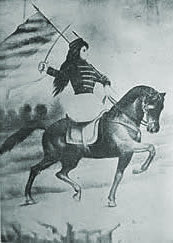
|
Women and Independence in Latin America An exploration of women's involvement in the Latin American Wars of Independence |
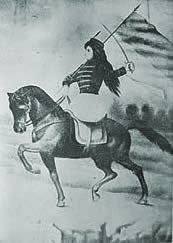
|

|
Women and Independence in Latin America An exploration of women's involvement in the Latin American Wars of Independence |

|
Click on one of the images below to see the full-size image
 Buenos Aires, 1834 |
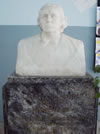 Juana Manso |
 Album de Señoritas |
 Juana Manso |
 Juana Manso |
 Dr Maza |
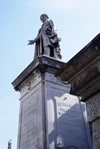 Marco de Avellaneda |
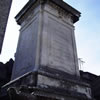 Marco de Avellaneda |
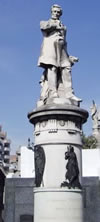 Valentín Alsina |
 ‘Guerra civiles del rio de la Plata´ |
Gender:Female
Ethnic origen: White
Events:
| 1819 | - | Buenos Aires | - | Not applicable | - | She was born in Buenos Aires on 26 June 1819. |
| 1819 | - | Rio de Janeiro | - | Unknown | - | She went to Rio in 1819. |
| 1840 | - | Montevideo | - | Unknown | - | Her family emigrated here for political reasons. |
| 1844 | - | Rio de Janeiro | - | Unknown | - | She went to Rio de Janeiro around this time. |
| 1848 | - | Havana | - | Unknown | - | She was here around 1848. |
| 1852 | - | Buenos Aires | - | Unknown | - | She co-founded La Camelia. |
| 1852 | - | Rio de Janeiro | - | Unknown | - | She found the newspaper "O jornal das Senhoras" |
| 1853 | - | Buenos Aires | - | Unknown | - | She returned to Buenos Aires. |
| 1871 | - | Buenos Aires | - | Unknown | - | She was made a member of the National Commission for Schools. |
| 1875 | - | Buenos Aires | - | Unknown | - | She died in Buenos Aires on 24 April 1875. |
| 1967 | - | Argentina | - | Unknown | - | Her image appeared on a stamp. |
Connections:
Argentine exiles in UruguayTexts:
1844 - Una Armonia, Homenaje al Señor Don Juan Bautista Cuneo
Biography:
She was born in Buenos Aires on 26 June 1819.
She founded and directed the Periódico de Literatura, Modas, Bellas Artes y Teatros, 1 January – 17 February 1854; also the women’s magazine La Camelia, 1852, with Rosa Guerra. She worked as a teacher on Sarmiento’s education project and wrote the first Argentine history to be used in public schools. In the 1860s?, she was accused of lunacy and not being in control of her senses in her writing.
Sáenz Quesada claims that she was influenced by Mariquita Sánchez’s work in educating girls at the Sociedad de Beneficencia (Sáenz Quesada, 319).
A friend of Sarmiento, she edited the Album de las Señoritas, a magazine discussing literature, fine arts and the theatre from 1853-54. In 1859 she became the first head of a co-educational school. (Knaster, 92, 127.)
As a child she received the best possible education for her time. The family emigrated to Montevideo for political reasons, Manso opened a school there. She moved to Rio de Janeiro where she married Portuguese violinist Francisco de Saa Noronha. Their daughter, Eulalia was born in 1846. They lived in Havana for a while before returning to Rio where her daughter Hermina was born. She edited a women's magazine in Brazil and published Los misterios del Plata and La familia del Comendador (1846). She returned to Buenos Aires in 1853, when Noronha left her. She then founded the Album de Señoritas. She ran a mixed school established by Sarmiento. She returned to Brazil with her daughters, where she taught, and went back to Buenos Aires when Sarmiento regained power. In 1871 she was made a member of the National Commission for Schools. She died in Buenos Aires on 24 April 1875. Her remains were not allowed in the Buenos Aires cemetery and were kept in the dissidents´ cemetery until 1915. In 1967 her image appeared on a stamp. (Sosa de Newton, 383)
Davies describes her as "the first feminist intellectual of the River Plate provinces" and analyses her portrayal of women in Album de Señoritas, Los misterios del Plata, and La familia del Comendador. (Davies et al, 241-267)
References:
Meyer, Doris (editor). (1995) Reinterpreting the Spanish American Essay: Women Writers of the 19th and 20th Centuries
Arambel Guinazu, Maria Cristina , Martin, Claire Emilie (2001) Las mujeres toman la palabra: Escritura feminina del siglo XIX. Volume: 1
Davies, Catherine, Brewster, Claire and Owen, Hilary (2006) South American Independence. Gender, Politics, Text
Knaster, Meri (1977) Women in Spanish America: An Annotated Bibliography from Pre-Conquest to Contemporary Times
Sáenz Quesada, María (1996) Mariquita Sánchez, Vida política y sentimental
Sosa de Newton, Lily (1986) Diccionario biográfico de mujeres argentinas